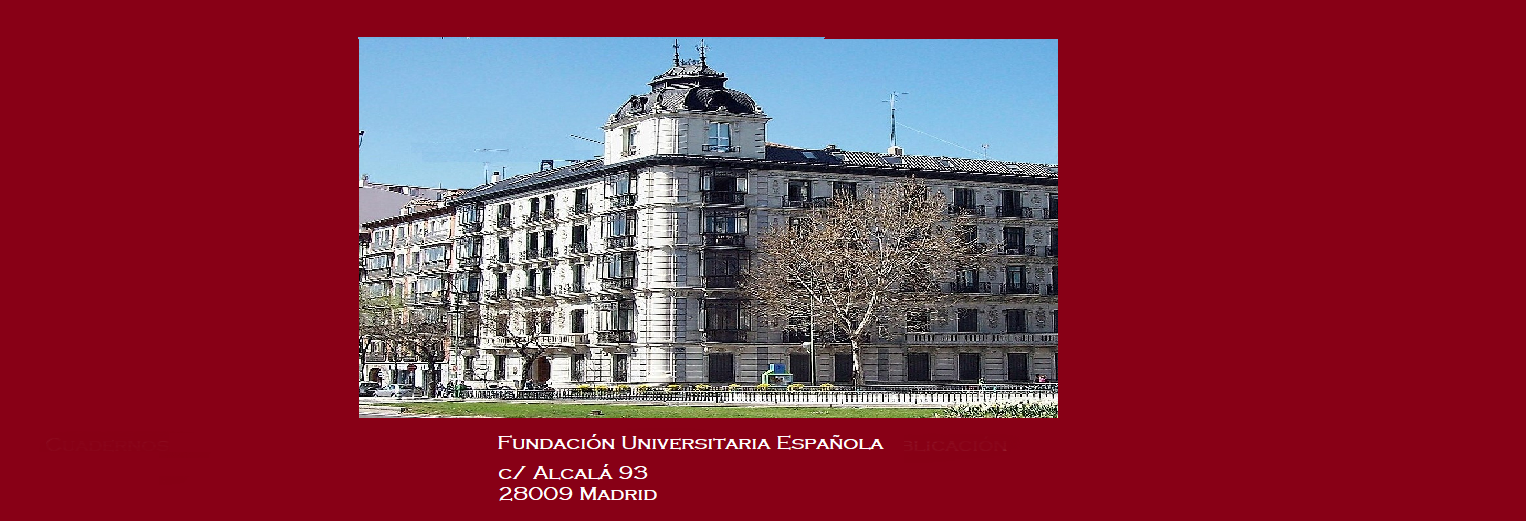Mecanismos alternativos de supervivencia durante el franquismo en «Un valle en el mar» (1950) de Concha Espina
DOI:
https://doi.org/10.51743/cilh.vi50.451Palabras clave:
trauma, posguerra, franquismo, violencia sexual, EspinaResumen
A pesar de que la obra de la escritora Concha Espina no se limita a su escritura falangista, su producción literaria extensiva ha recibido poca atención de la crítica. En su novela, Un valle en el mar (1950), como en su obra antes de la Guerra Civil Española, Espina contribuye a la discusión sobre la situación de la mujer española, desde una perspectiva conservadora. La novela, receptora del Premio Cervantes de Novela (1950), nos presenta el caso de Salvadora, víctima de violación. Este artículo ilumina a través de la teoría del trauma cómo Espina trata un tema tabú y ofrece estrategias psicoterapéuticas como salidas alternativas para
la supervivencia. Aunque la novela no es una crítica del franquismo, señala la falta de apoyo social para las víctimas de asalto sexual, además de la ausencia de justicia para las mujeres dentro del sistema legal.
Descargas
Estadísticas globales ℹ️
|
440
Visualizaciones
|
139
Descargas
|
|
579
Total
|
|
Citas
Alcalde, Ángel (2021): «Wartime and Post-war Rape in Franco’s Spain», The Historical Journal, 64.4: 1-23. DOI: 10.1017/S0018246X20000643 [12-9-2021]. DOI: https://doi.org/10.1017/S0018246X20000643
Álvarez Álvarez, María (2023a): «La representación de las dos Españas en Retaguardia (1937), de Concha Espina», Impossibilia, 26: 60-73. DOI: 10.30827/impossibilia.262023.28240 [2-5-2024]. DOI: https://doi.org/10.30827/impossibilia.262023.28240
Álvarez Álvarez, María (2023b): «Concha Espina y el “solemne mandato” de la mujer: personajes femeninos y el discurso de la Sección Femenina en Retaguardia (1937)», Itinerarios, 38: 29-44. DOI: 10.7311/ITINERARIOS.38.2023.02 [2-5-2024]. DOI: https://doi.org/10.7311/ITINERARIOS.38.2023.02
Bados, Arturo y Peró, Maribel (2015): «Psychometric properties of the Modified Tonic Immobility Scale», Anales de Psicología, 15.1: 66-73. DOI: 10.6018/analesps.31.1.158071 [12-9-2021]. DOI: https://doi.org/10.6018/analesps.31.1.158071
Bretz, Mary Lee (1980): Concha Espina. Boston, Twayne Publishers.
Bryant-Davis, Thema y Wong, Eunice C. (2013): «Faith to Move Mountains: Religious Coping, Spirituality, and Interpersonal Trauma», The American Psychologist, 68.8: 675-684. DOI: 10.1037/a0034380 [12-9-2021]. DOI: https://doi.org/10.1037/a0034380
Budwick, Emily Miller (2015): «Section II: Golems, Ghosts, Idols, and Messiahs: Complicated Mourning and the International Construction of a Jewish Symptom», en The Subject of Holocaust Fiction, ed. A. H. Rosenfeld (Bloomington, Indiana UP): 121-125.
Caruth, Cathy (2013): «Parting Words: Trauma, Silence, and Survival: Sigmund Freud, Beyond the Pleasure Principle», Literature in the Ashes of History, Baltimore, John Hopkins UP: 3-17.
Dendle, Brian J. (1997): «Solar Imagery in Three Novels of Concha Espina», Anales de la literature española contemporánea, 22. 1/2: 199-209. https://www.jstor.org/stable/27741356 [12-9-2021].
Espina, Concha (1972): Un valle en el mar en Obras completas de Concha Espina, Madrid, Ediciones Fax, II: 133-307.
García de Enterría, María Cruz (1967): «Unas cartas de Concha Espina», Boletín de la Biblioteca De Méndez Pelayo, 43: 283-306. Edición digital de Biblioteca Virtual Miguel de Cervantes, https://www.cervantesvirtual.com/obra/unas-cartas-de-concha-espina-979165/ [12-9-2021].
Gómez-Blesa, Mercedes (2019): «Las modernas del 98», Modernistas y vanguardistas: las mujeres faro de la Edad de Plata, Madrid, Ediciones Huso: 195-318.
González-Allende, Iker (2011): «Las novias de Concha Espina: amor durante la Guerra Civil Española», Revista de estudios hispánicos, 45.3: 527-549. https://digitalcommons.unl.edu/modlangspanish/92?utm_source=digitalcommons.unl.edu%2Fmodlangspanish%2F92&utm_
medium=PDF&utm_campaign=PDFCoverPages [12-9-2021].
Heneghan, Dorota (2021): «Rupturas y contradicciones: Concha Espina y la visión de la mujer en Dulce Nombre (1921)», Hispanófila, 193: 99-112. DOI: 10.1353/hsf.2021.0057 [1-1-2024]. DOI: https://doi.org/10.1353/hsf.2021.0057
Johnson, Roberta (2019): Major Concepts in Spanish Feminist Theory, Albany, SUNY Press. DOI: https://doi.org/10.1353/book66245
Kirkpatrick, Judith A. (1995): «From Male Text to Female Community: Concha Espina’s La esfinge maragata», Hispania, 78.2: 262-271. DOI: 10.2307/345392 [1-1-2024]. DOI: https://doi.org/10.2307/345392
Kirkpatrick, Judith A. (1996): «Concha Espina: giros ideológicos y la novela de mujer», Hispanic Journal, 17.1: 129-139. http://www.jstor.org/stable/44284489 [1-1-2024].
Lee, Deborah A. y James, Sophie (2011): «Understanding your trauma memories: Flashbacks, nightmares, and intrusive thoughts», The Compassionate-Mind Guide to Recovering from Trauma and PTSD: using compassion-focused therapy to overcome flashbacks, shame, guilt and fear, Oakland, New Harbinger Publications: 31-44.
Littleton, Heather (2007): «An Evaluation of the Coping Patterns of Rape Victims: Integration with a Schema-Based Information-Processing Model», Violence Against Women, 13.8: 789-801. DOI: 10.1177/1077801207304825 [1-1-2024]. DOI: https://doi.org/10.1177/1077801207304825
Littleton, Heather y Radecki Breitkopf, Carmen (2006): «Coping With the Experience of Rape», Psychology of Women Quarterly, 30: 106-116. https://doi.org/10.1111/j.1471-6402.2006.00267.x [1-1-2024]. DOI: https://doi.org/10.1111/j.1471-6402.2006.00267.x
Moglen, Seth (2005): «On Mourning Social Injury», Psychoanalysis, Culture and Society, 10.2: 151-167. 10.1057/palgrave.pcs.2100032 [12-9-2021]. DOI: https://doi.org/10.1057/palgrave.pcs.2100032
Morcillo, Aurora G. (2007): «Walls of Flesh. Spanish Postwar Reconstruction and Public Morality», Bulletin of Spanish Studies, 84.6: 737-758. https://doi.org/10.1080/14753820701539349 [1-1-2024]. DOI: https://doi.org/10.1080/14753820701539349
Mullor-Heymann, Montserrat (1998): «“General y señor: yo te bendigo”. Concha Espina y las escritoras partidarias de Franco», Vencer no es convencer: Literatura e ideología del fascismo español, Madrid, Vervuert: 87-99. DOI: https://doi.org/10.31819/9783964564733-006
O’ Bryne, Patricia (2008): «Popular fiction in postwar Spain: the soothing, subversive novela rosa», Journal of Romance Studies, 8.2: 37-57. DOI: 10.3167/jrs.2008.080204 [1-1-2024]. DOI: https://doi.org/10.3828/jrs.8.2.37
Pargament, Kenneth, Harold G. Koenig y Lisa M. Pérez (2000): «The Many Methods of Religious Coping: Development and Initial Validation of the RCOPE», Journal of Clinical Psychology, 56.4: 519-543. DOI: 10.1002/(sici)1097-4679(200004)56:4<519::aid-jclp6>3.0.co;2-1 [1-1-2024]. DOI: https://doi.org/10.1002/(SICI)1097-4679(200004)56:4<519::AID-JCLP6>3.0.CO;2-1
Plak un, Eric (2020): «COVID-19 and Psychotherapy: Addressing Blocked Mourning», Psychiatric News, 55.14: 6, 14. DOI: https://doi.org/10.1176/appi.pn.2020.7b11
Ragan, Robin (2011): «La enfermedad extraña: Inapetencia, Class and Eating Disorders in La esfinge maragata», Hispanic Review, 79.2: 213-233. https://www.jstor.org/stable/41289910 [1-1-2024]. DOI: https://doi.org/10.1353/hir.2011.0027
Rojas Auda, Elizabeth (1998): Visión y ceguera de Concha Espina: su obra comprometida, Madrid, Editorial Pliegos.
Sieburth, Stephanie (2014): Survival Songs: Conchita Piquer’s Coplas and Franco’s Regime of Terror, Toronto, University of Toronto Press. DOI: https://doi.org/10.3138/9781442661448
Ugarte, Michael (1997): «The Fascist Narrative of Concha Espina», Arizona Journal of Hispanic Cultural Studies, 1: 97-114. https://www.jstor.org/stable/20641391 [1-1-2024]. DOI: https://doi.org/10.1353/hcs.2011.0089
Vermetten, Eric y J. Douglas Bremner (2003): «Olfaction as a Traumatic Reminder in Posttraumatic Stress Disorder: Case Reports and Review», The Journal of Clinical Psychiatry, 64.2: 202-207. DOI: 10.4088/jcp.v64n0214 [1-1-2024]. DOI: https://doi.org/10.4088/JCP.v64n0214
Walser, Robyn D. y Darraah Westrup (2007): «Acceptance, Mindfulness, and Trauma: The Problem of Experimental Avoidance and the Verbal Nature of Trauma», Acceptance and Commitment Therapy for the Treatment of Post-Traumatic Stress Disorder and Trauma-Related Problems: A Practitioner’s Guide to Using Mindfulness and Acceptance Strategies, Oakland, New Harbinger Publications: 7-18.
Descargas
Publicado
Cómo citar
Número
Sección
Licencia
La editorial Fundación Universitaria Española conserva los derechos patrimoniales (copyright) de las obras publicadas, y favorece y permite la reutilización de las mismas, preferentemente permitiendo el acceso al texto a través del DOI, siempre que se cite la autoría y fuente original y no se use para fines comerciales. Los autores firmantes transfieren parcialmente los derechos de propiedad del presente trabajo a la Fundación Universitaria Española (NIF: G28433670), para las ediciones impresas y online.
































